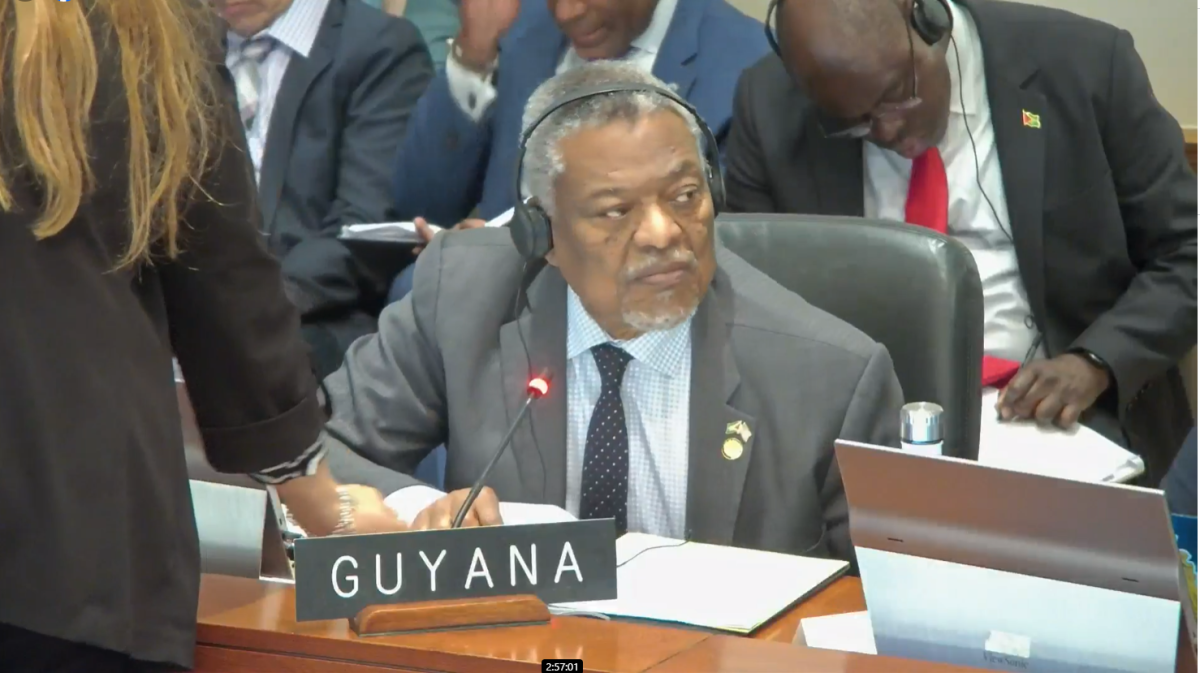An OAS resolution on the controversial elections in Venezuela failed to pass on Wednesday in Washington after disagreement over one sentence and what was also evident was the deep division in CARICOM on the issue.
The meeting of the Permanent Council of the Organisation of American States (OAS) was presided over by Guyana-born, Antigua and Barbuda Ambassador, Ron Sanders. The resolution sought among other things to call on the National Electoral Council of Venezuela to publish immediately the voting results for each polling station from Sunday’s elections and for the conducting of a comprehensive verification of results in the presence of observers. The resolution also sought to recognize the fundamental right of people to demonstrate without suffering reprisals and the preservation of all electoral equipment.
Prior to voting, Sanders had signalled that despite five hours of talks, the various delegations had failed to settle disagreement over one sentence in the resolution which he did not identify.
With his eyes closed, he then pulled the name of a country from a box to kick off the voting after which voting would proceed in alphabetical order in Spanish.
The name of the country that he picked was Barbados. Asked to vote, the Barba-dos envoy answered “abstain”. Voting then proceeded around the table.
When the tally was announced, 17 were in favour, none against, 11 abstained and there were five absences. The resolution needed 18 votes to succeed.
Of the CARICOM countries, Guyana voted in favour. Its vote was cast by its ambassador to the United States and the OAS, former President and Prime Minis-ter Sam Hinds. Also supporting the resolution were Haiti, Jamaica and Suriname.
Abstentions among CARICOM countries were The Bahamas, Barbados, Belize, Grenada, St Kitts-Nevis, St Lucia and Antigua and Barbuda.
Even more revealing were the absentees: Dominica, St Vincent and the Grenadines and Trinidad and Tobago. During the July 28-30 CARICOM summit in Grenada, both Dominica and St Vincent and the Grenadines recognized the declared re-election of Venezuelan Presi-dent Nicolas Maduro despite the raging controversy over the results and the claim by the opposition that it had won handily. Just before the election, Trinidad concluded a major gas development deal with Venezuela.
Argentina, Canada, Chile, Costa Rica, Ecuador, El Salvador, the United States, Guatemala, Panama, Paraguay, Peru, the Dominican Republic and Uruguay voted in favour of the resolution.
Bolivia, Brazil, Colombia and Honduras abstained. Venezuela was not present neither was Mexico.








